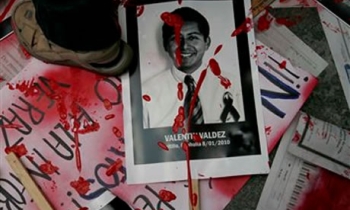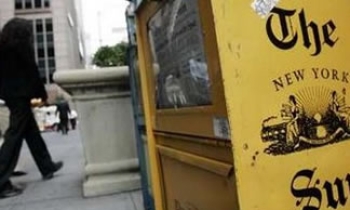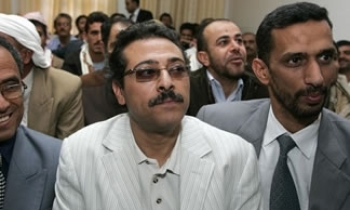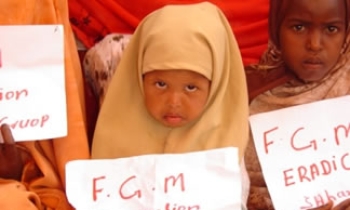Six women who risked their lives reporting in Iraq, a Mexican reporter who faced death threats for her reporting on paedophiles, and an Ethiopian journalist who was charged with treason have received awards for courage from the International Women's Media Foundation (IWMF).

ABC News' Bob Woodruff, who was nearly killed in a January 2006 bombing in Iraq, presented the award to the Iraqi women for their work in the McClatchy news organisation's Baghdad bureau. The recipients were Sahar Issa, Huda Ahmed, Shatha al Awsy, Alaa Majeed, Zaineb Obeid and Ban Adil Sarhan.
Eighty per cent of reporters killed in Iraq are Iraqis, Woodruff said, adding that the women slept with bulletproof vests and helmets by their beds.
Issa accepted the courage award on behalf of the women, saying Iraqi journalists must lead double lives, not telling friends or relatives what they do because of the dangers, and knowing that "every interview we conduct may be our last."
"So why continue?" she asked. "It's because I'm tired of being branded a terrorist, tired that a human life lost in my country is no loss at all. This is not the future I envision for my children. They are not terrorists, and their lives are not valueless."
"Our voices have carried, through war, through death and sorrow, through sleepless nights and fear-driven days, in an effort to reflect the picture of our country as we see it, and of our people as only we can truly know them," Issa said.
Mexican Lydia Cacho, 44, a correspondent for CIMAC news agency, a feature writer for Dia Siete magazine and the founder of a centre for women, travels with four bodyguards because of threats on her life for her reporting. Her stories have helped jail a paedophile ring leader.
Cacho said Mexico is the second-most dangerous place for journalists in the world, only after Iraq. But she said in her acceptance speech that she "will not be silenced." Cacho was also arrested for libel, but successfully countersued for corruption and human rights violations, leading to federal legislation decriminalising defamation.
Ethiopian reporter and former publisher Serkalem Fasil, 27, was one of 14 journalists who were arrested and charged with treason for publishing articles critical of the government's conduct in May 2005 parliamentary elections. On the day of her arrest, Fasil, who was two months pregnant, was severely beaten up by the police.
She was freed in April, but the government brought new charges against her three months later, and her case is scheduled to be heard by the Supreme Court next month. Fasil did not come to New York. In a video, she said that despite widespread fear in the country, she would continue to speak out — even if she pays with her life.
The foundation presented its lifetime achievement award to freelance journalist Peta Thornycroft, 62, who in the face of a media crackdown in Zimbabwe renounced her British citizenship and became a Zimbabwe citizen so she could continue reporting from the country.
She said Zimbabwe's President Robert Mugabe has turned an agriculturally rich country with high literacy into a nation where "people are foraging for food" and children can hardly read. "Next year Mugabe will stand for re-election, seeking five more years to torment his people," Thornycroft said. "They are too hungry to oppose him."
The Washington-based International Women's Media Foundation (IWMF) was launched in 1990 with a mission to strengthen the role of women in the news media worldwide.









